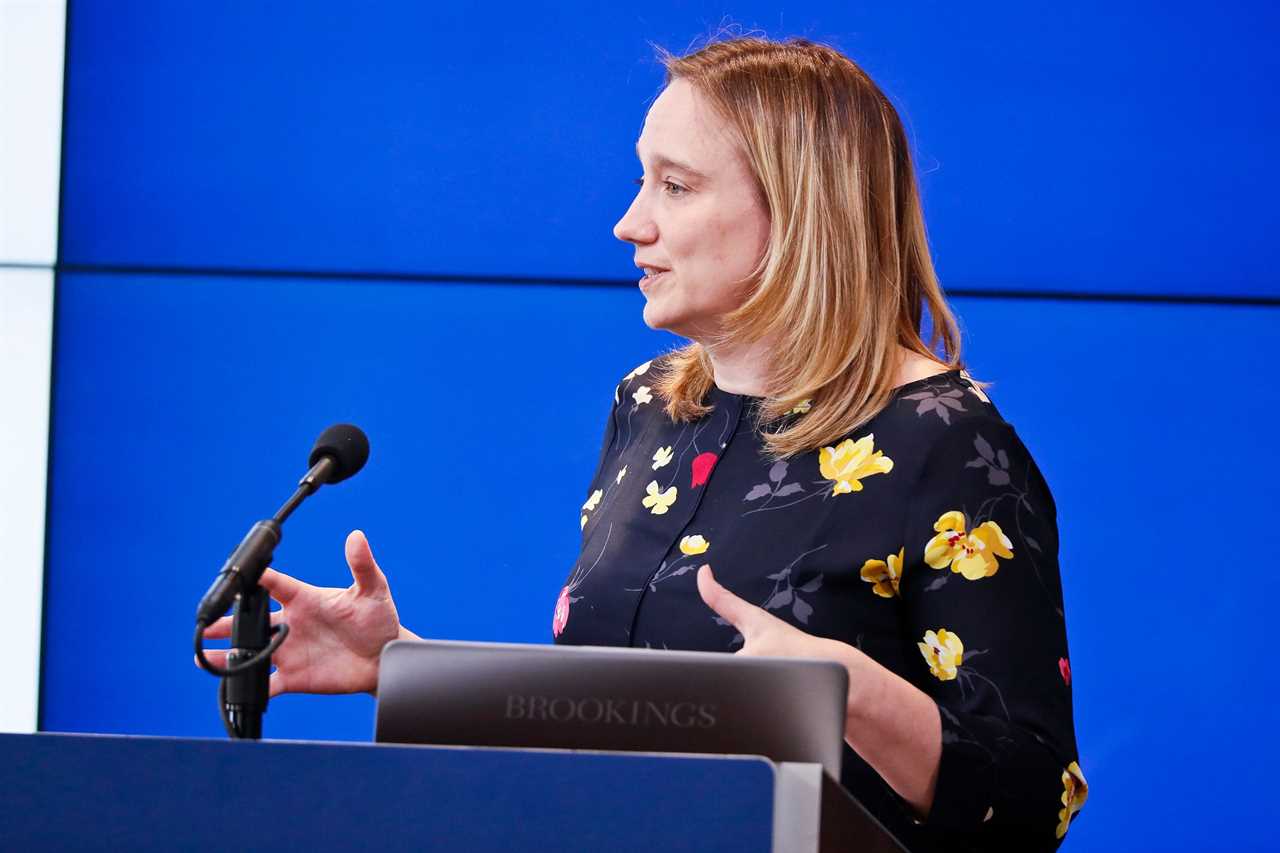
Twitter is famous for its fierce arguments, but it’s rare to see economists throwing this kind of heat: “Anyone as clueless about reality as Larry should not be listened to.”
Larry in this case is Larry Summers, the former Treasury secretary and one of the most prominent voices on economic policy — and also a frequent foil for the tweet’s author, Claudia Sahm.
Sahm is no random gadfly: She spent 12 years as an economist at the Federal Reserve and invented the Sahm rule, a formula to detect the onset of recessions, and is now a senior fellow at the Jain Family Institute.
Since leaving the central bank in 2019, she’s become a leading voice for aggressive federal action to spur job creation and curb poverty — a goal she says is intended to center everyday people in Washington, D.C.’s policy debates. She’s not afraid of tangling with titans of the field like Summers, who has lately undercut President Joe Biden’s sweeping agenda with warnings of rising inflation.
In fact, she’s become a critic of the economics field more broadly and what she sees as its intellectual blind spots — decrying the lack of diversity and inclusion within macroeconomics in an explosive blog post titled, “Economics is a disgrace.”
She does tweet about Summers a lot though.
“I want economic policy to be good, like, economists to do good in the world. Larry is something of a — I don’t know — I see him as a roadblock to achieving that goal,” she told POLITICO Magazine in a recent Zoom interview, expressing frustration that he’s pushed back against more robust federal intervention into the economy at various points in his career.
Sahm has been particularly vocal in the debate over the government’s response to the pandemic, advocating for stimulus checks and generous unemployment benefits, and shooting down arguments that such actions would pose dangerous inflation risks. She’s worked closely with Sen. Michael Bennet (Colo.) and other Democrats on the Hill to craft proposals beefing up the nation’s “automatic stabilizers,” policies that tie government benefits to economic conditions rather than subjecting the unemployed to the uncertain whims of Congress and imperfect economic forecasting.
Perhaps even more than previous crises, the coronavirus has laid bare how difficult it is for policymakers to chart a course for the economy. After trillions of dollars in spending and millions of vaccinations, the country is in the process of recovering, but only kind of, weighted down by the ever-present uncertainty of how long and how aggressively the virus will affect our daily life.
“The world changes really fast,” she says. “I mean, we’re always bad at forecasting. But forecasting is basically impossible right now.”
In a wide-ranging conversation, Sahm explained exactly why the current environment is so challenging for policymakers and offered a pointed critique of the Biden administration’s response to the expiration of enhanced unemployment benefits. She also laid out why Jerome Powell deserves a second term to head the Fed and where his skills even exceed former Fed Chairs Ben Bernanke and Janet Yellen. And, of course, she got real about her approach to Twitter. A transcript follows, condensed and edited for length and readability.
It seems like, from some of the preliminary data, that even though the enhanced unemployment benefits have expired, that hasn’t necessarily translated to a huge influx of workers. What’s your current take on enhanced unemployment benefits? What should Congress be doing right now?
The labor shortage was not going to be solved by cutting off the jobless benefits. And that isn’t so much about the effect of jobless benefits. I mean, it is extra income, so workers can wait a little while to find the job that fits with what they were doing before. Research shows that is a benefit of giving people time to find that job again. When you cut off benefits, you’re actually doing everybody a disservice because you’re pushing people to go back to jobs that aren’t the jobs where they’re most productive. You don’t earn as much. That’s actually part of the point, is to give workers time to find that job again, to wait until the jobs are back.
People do need to feed their kids and pay their rent, so it does induce people to go look for jobs. The problem was — other than that’s absolutely cruel — the problem in terms of solving the labor shortage was in this recession, we had millions of workers who walked away from jobs. If you quit your job, you do not get unemployment insurance. In the United States, and particularly in a lot of these states that have Republican governors, it’s actually really hard to get jobless benefits. So you don’t even have all of the unemployed getting jobless benefits. Cutting jobless benefits isn’t going to do anything to get them back.
In addition, it created a false sense of hope among small business owners that they’re going to be able to find the workers they need. This was not enough. So that’s really sad. And now we have more evidence of the fact that, yes, when you cut off jobless benefits, workers will come back, but it’s not a huge effect.
So the broader lesson to draw from this recession, and it very much continues from the last one, is that our unemployment insurance system is broken. And there are a lot of different ways to fix it. Sen. Bennet — I worked a lot with his office — has a really comprehensive plan to create those automatic stabilizers: top it up in recessions, phase it out as the economy recovers.
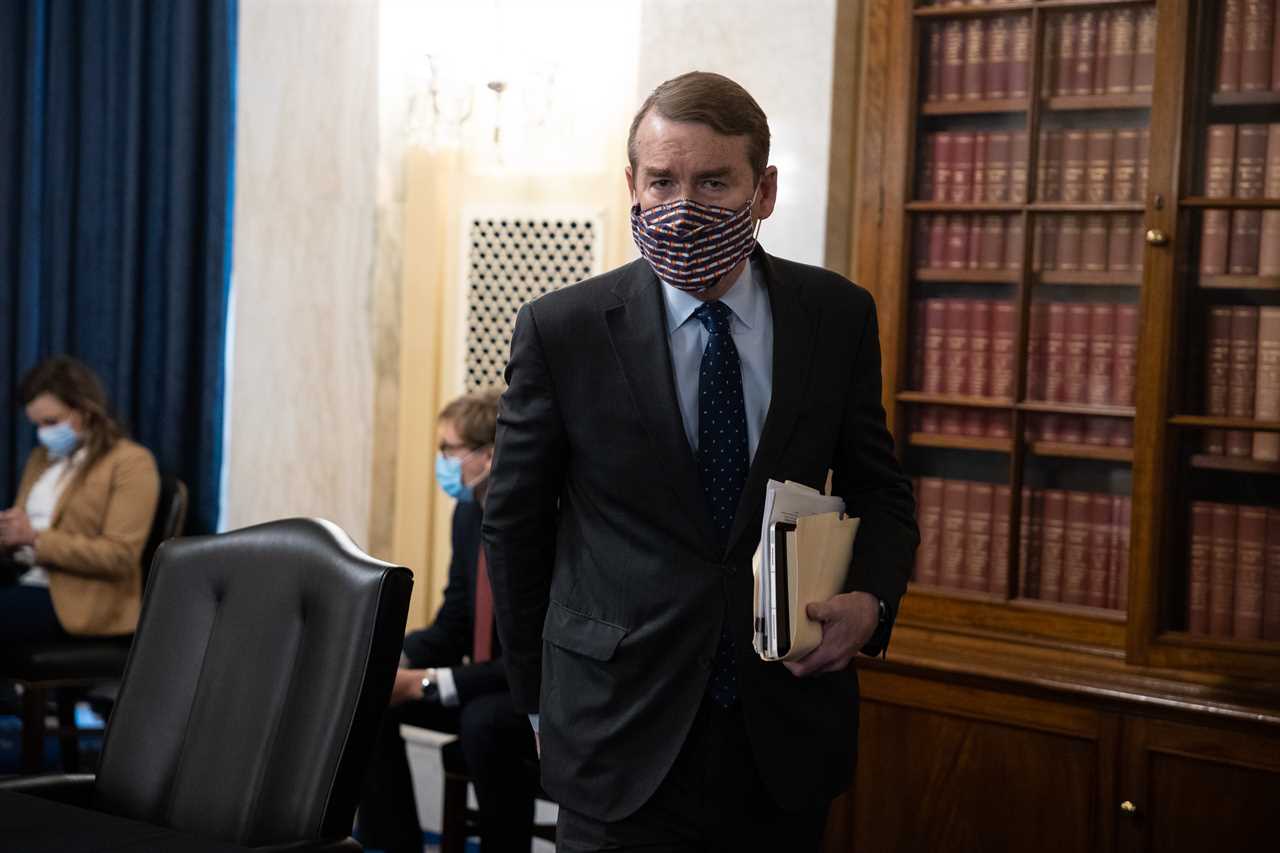
Jobless benefits are extremely fraught. It becomes a morality play very quickly. “The unemployed are lazy. We need to push them to go back to work.” But because so many people lost their job in this recession early on, that had to be why we had an extra $600 a week and the gig [workers] — I mean, the benefits that passed in the CARES Act were off-the-charts generous for anything we’ve done. In the Great Recession, the extra weekly benefits were 25 bucks a week.
But I think that was because at the beginning of the recession, there was no morality play. Almost 20 percent of workers, by some measures, lost their job. But as we go further and further along, this is a smaller and smaller group. And so, you get back into, “The unemployment insurance is causing problems in the economy.”
Bringing it back to the people, the unemployed were the ones that we failed the most in this recession. Because they had to live with a constant, “We’re going to give you money, but it’s going to expire. But we’re going to give you money, and it’ll expire. And oh, you have to fill out another form.” And then the straw that broke the camel’s back: “Oh, you’re gonna have benefits till September? No, we’re gonna cut them off in July.” There’s absolutely zero justification in terms of good economic policy of pulling the rug out from under the people who are suffering the most.
Honestly, the moment when I was the most frustrated with the Biden administration is when they did not fight for those extensions. They didn’t even use the bully pulpit to tell the Republican governors, there is no justification for what you’re doing. States like Texas that joined in had unemployment rates well above the national average. There was no saying, “Oh, well, these states have recovered.” Biden walked away from that. There was basically no push from the White House to extend even the long-term unemployment benefits.
The economy’s in an odd place right now, where we sort of reopened and things aren’t as bad as they were, but we still have the Delta variant. It seems like the Biden administration has shifted its focus to, “Let’s make long-term investments.” Is that the right focus, or should we still be doing relief?
It’s tough. During the campaign, his whole thing to build back better was really about getting to someplace better than February of 2020. The surge last winter really set the Biden administration back in their agenda, because Covid came back with a vengeance. The economy started to stall out. The vaccine wasn’t here yet. It was clear that the relief wasn’t going to be enough to get us through the winter. And so instead of the better part, they had to just do the back, the building back. The Rescue Plan was really big, generous. I firmly agree that that was the right thing to do. I mean, you can argue about the structure and the components and the timing, but that was never what their focus was going to be.
Biden came in and the Democrats came in with a vision of a better country, a better economy. We were in a super deep hole, but the pace of the economic recovery has been really good. And part of that is because Congress spent $5 trillion. That’s a lot of money. You do relief in a recovery — you want to make the recession as least severe as you can. And then you want the recovery to be as fast as you can. You wouldn’t necessarily do relief all the way back to where you started, but you got to get it on a glide path. You’ve got this positive feedback loop. And we have that, and then Covid comes back. So what is interfering with this recovery, and what’s probably making it hard to put the political capital behind more and more economic relief, is the problem is not in the economy. The problem is a public health crisis.
A flaw in every single one of the big relief packages was overestimating how quickly the pandemic would be over. The CARES Act was written for Covid to be under control in the summer of 2020. It wasn’t. And the winter packages, especially the Rescue Plan, was absolutely written for us to be in a good place by September. And frankly, a lot of the opponents to the Rescue Plan felt like Covid was going to be under control even sooner because we have the vaccine, right? So, we have this confounding factor of the vaccine. And while the Biden administration is really trying to get the vaccine out, it’s running into this political mess.
So I understand — the recovery is going, and now it’s time to do long-term investments. I do see where you want to start shifting that balance. But wholesale walking away from those who are still suffering — that’s a pretty abrupt cutoff. As much as I think getting cash to people is great relief, I would not endorse sending another stimulus check. But extending long-term unemployment benefits? That’s the thing we should do.
There’s more momentum at the Fed towards an interest rate increase as early as next year, even though it doesn’t seem like officials are that confident that the unemployment rate is actually going to get back down to where it was before the pandemic. I’m curious if you think that that’s a smart signal to be sending.
We are in a moment of extraordinarily high disagreement among [Fed policymakers]. And there’s disagreement on so many levels, which is what makes it really hard on the outside to piece through what exactly is going on inside their meetings. So, you have the first level of, they have a new framework [targeting an average of 2 percent inflation over time and considering whether the economy is experiencing broad employment]. Those are new to the Fed. It’s not surprising that the different participants of the [Fed’s rate-setting committee] look at the strategy document that they all signed on to and see different things.
Also, it is abundantly clear, and Powell said it: We all got the same data right now, but the officials have different views on what’s happening. And then they have different views on, OK, well, if that’s what’s happening, what should we do in terms of interest rates? So, you have all these levels at which Fed officials can disagree. Oh, and then you throw on top of that we have the highest inflation rates in decades.
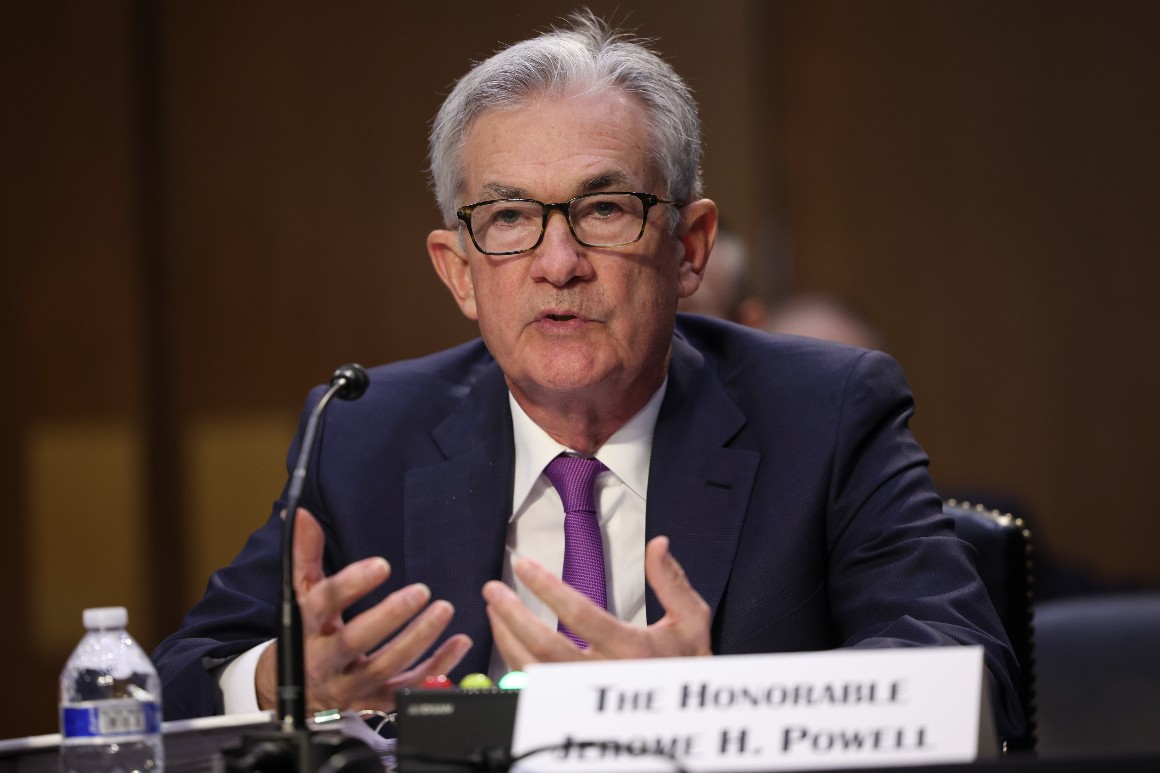
What I was impressed with at the September meeting is that Jay is still clearly hanging on to — he can’t really build a consensus about next year, because the consensus isn’t there. But they did manage to keep the [projections on the next rate hike] balanced. This was a meeting that it could have been, and I think people thought the majority of participants would say, “In my opinion, we’re gonna raise rates next year.” And instead, we got an even split.
Jay is helping them walk a tightrope. And they’re trying to buy a little time to see what the data are.
You’ve worked for both Fed Chair Jay Powell and Fed Governor Lael Brainard. What would be the case that you would make for each of them to be the next Fed chair?
The Fed is being tested right now in a way that it has not been tested since probably the 1970s, early ’80s. So it’s a really important moment in monetary policy decisionmaking — frankly also regulatory, but we’ll stick with monetary — and you need the sum to be greater than the parts. Biden has an amazing opportunity to put four people on the board [with upcoming vacancies]. And they have some really good options for chair. Jay has been a great Fed chair, and either of them going forward would be a great Fed chair.
If Lael’s Fed chair, I worry about who’s vice chair. Working with Jay and with Lael, I have been really impressed at how well they work together. They get more done than either of them individually would. And their strengths are not the same. And I give Jay a lot of credit, as Fed chair, that he recognizes he’s not an academic macroeconomist. He is not deeply steeped in macro policy. I mean, this is very complicated what the Fed is trying to do right now. Rich Clarida was very active in that as vice chair, but Jay elevated Lael to be his right hand in this.
And seeing how he worked with her on the Community Reinvestment Act — he really looks to her for her professional judgment. Jay is really good about respecting what he knows and what he doesn’t know. He seeks out what he doesn’t know. That’s why he likes Twitter. He’s a sponge, he’s out there, and he’s questioning his beliefs. And he’s asking staff to explain things. And I think it’s a real benefit he’s not steeped in traditional macro because the world is changing, and the Fed is trying to change its tools.
To me, the strength of Jay’s, that Lael does not have, is that Jay understands markets. Wall Street has not freaked out because the Fed has a new framework and we have inflation higher than we have seen in decades. And Jay has been able to speak to them, not freak them out. He’s very good. I’ve worked for Ben [Bernanke], Janet [Yellen], Jay, all as Fed chair. I’ll stick to Fed chair — I mean, I’ve seen Lael do a lot of public speeches, I helped write some of them — but by far, Jay is the best communicator. And right now, communication policy is probably the strongest tool in their toolkit. Which is absolutely frightening, just because the Fed’s not good at that. But I mean, communication policy in a low interest-rate environment is incredibly important. And he throughout this crisis has been the most competent-sounding leader.
And he centers the policy the Fed is doing in the effects it has on people. And having worked with him, that is real. Like, he does that behind closed doors too. That is not the way economists think about monetary policy. It’s not that we don’t like people, it’s just our models abstract from people and at some point, you start forgetting policy decisions like interest rates, these translate into people. And Jay, he brings it back.
Lael is very well-spoken. She’s extremely intelligent. She’s a really hard worker. And she works her staff really hard. I enjoyed working for her. Her and Janet have a lot of similarities in their work ethic. They have very different personalities.
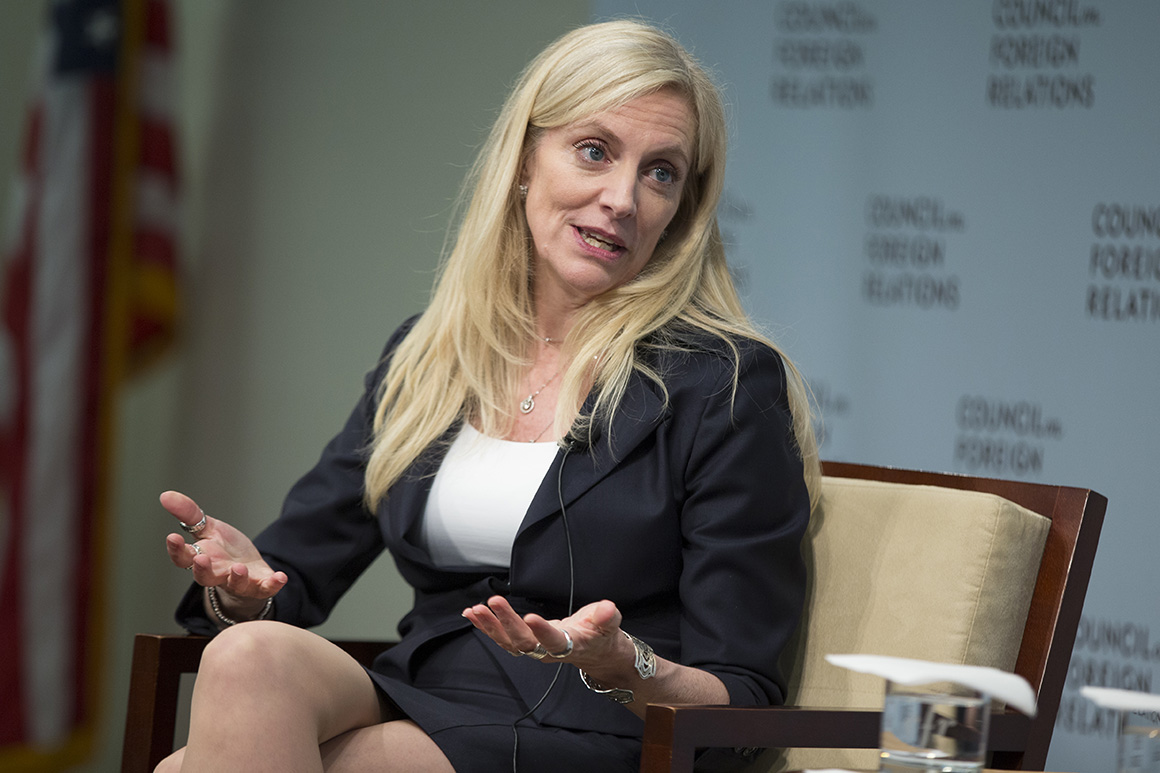
So long story short, either of them would be a great Fed chair. I think as a duo, they would be even better. I think Jay for one more round of Fed chair, Lael as vice chair, which is often Fed chair in waiting. To me, that just feels like a really powerful combination. Because if you put Lael as chair, Lael has a really important portfolio, and as chair you cannot do it all. She is point on digital currency, she is point on payment systems. She’s really good at getting point on stuff that’s important. Oh, climate change. These are all things that are in her portfolio. If Lael is chair, who does those? Because chair especially in the next year is all about monetary policy. She can’t do it all. And frankly, I haven’t heard many names talked about for any of these. But if Lael’s chair, who does her job?
As long as it’s Jay or Lael, I’ll be okay. But I probably will flip out about one of the vice chairs. Though I promised myself I will remove myself from Twitter the date of this. Because at the end of the day, the president appoints, and the Senate confirms.
You’re pretty spicy on Twitter. I’m curious, is that something that you recommend for other people?
I truly love working in economic policy. I became an economist because I became convinced by my professors that economists can do good in the world. There are times where I have questioned whether this is actually the case, but that’s why I do the work that I do is to make sure that policymakers have the absolute best advice that I can give them. Now, what I learned, especially when I was a manager at the Fed, is — and this actually is probably why I’m so big on the sum needs to be greater than the parts — I learned that even though I can do a lot of work, 10 people who are really good at their job, they can do more work. So it’s really about the team.
There’s some been some really disastrous macroeconomic policy advice that has come from very senior, well-respected members of the economics profession. And then there’s also a culture that really beats down divergent voices. I saw that inside of the Fed. And outside of the Fed in academia and some of the fiscal policy circles, it’s really bad. And so, you’re just not going to make a lot of progress on economic policy unless you have a whole team of people who are rowing in the same direction.
In any case, to achieve this goal of giving the best policy advice that I can, I have seized the opportunity to use a variety of platforms. So I do a lot of press, I have written for Bloomberg Opinion, I have a Substack. I still give academic lectures. I do podcasts. I do talks to investors — they pay better than you all do [laughs]. But in every single setting where I am sharing my expertise, I am respectful of the audience. Because every platform has different expectations about the way that information is conveyed. If I use the kind of technical language that I would use at the [National Bureau of Economic Research] for a seminar, and I do that when I’m on Good Morning America, well, first of all, it’s not helpful. And second of all, they aren’t having me back. And vice versa. If I went to NBER and used the kind of language and the level of complexity that I would on Good Morning America, that isn’t gonna work either. So I try to meet people where they are.
Twitter is, of all the platforms I’m on in public, the most informal. Frankly, I think the way that I engage on Twitter is more Twitter-like than some of the senior macro people who I spar with. Like the way that Larry Summers, Olivier Blanchard use Twitter is as a lecture. Even Paul Krugman never interacts with people. They don’t follow a lot of people. They’re never replying. But I don’t go on Twitter to talk to myself. I engage with Twitter. The big benefit for me is I have an opportunity to talk with people that I would not in my everyday life as a policy adviser. I was very outspoken about the jobless benefits. I had a number of unemployed workers who would come to me in my DMs.
Being outspoken about the problems in the profession, that came from a place of working with students who had been harmed by the culture of economics. That was what drove my outspokenness. When I did that, it brought more people to me that were heard. And there are a lot of different people in economics right now trying to change the profession. I like to do things my way. The way that I have chosen to engage with the profession, like the “Economics is a disgrace” blog post, tweeting at Larry — I don’t know of anybody else who’s doing it this way. There are more “professional” ways to push economics. But frankly, people have been doing those for decades. And we haven’t made a whole lot of progress.
But to your question about, would I recommend this to other people? No. Although I’ve mentored some people that are pretty fiery, and I tell them, it’s your life, but I want you to know that when you do this, there will be a cost to this.
You talk about Larry Summers a lot. Why do you focus so much on him in particular? Why is he important to refute?
He is the most prominent public-facing economist in macro, full stop. He’s prominent and public. First, he has had extremely important policy roles across several administrations, and I have real problems with choices that he has made in those policy roles. I think they’ve been really harmful to a lot of people. He has continued to have these really big policy roles, even though the track record, in my opinion, is not commensurate with roles. So there’s that. And then even in moments of crisis, where he’s outside of the administration, he gets endless amounts of press, as much space as he wants to write opinion pieces. He has a very large public voice. He is very distinguished. It is very difficult to find any discussion of Larry Summers that doesn’t involve some mention of his intellectual prowess, his genius. I mean, he’s really elevated as someone who is worth listening to.
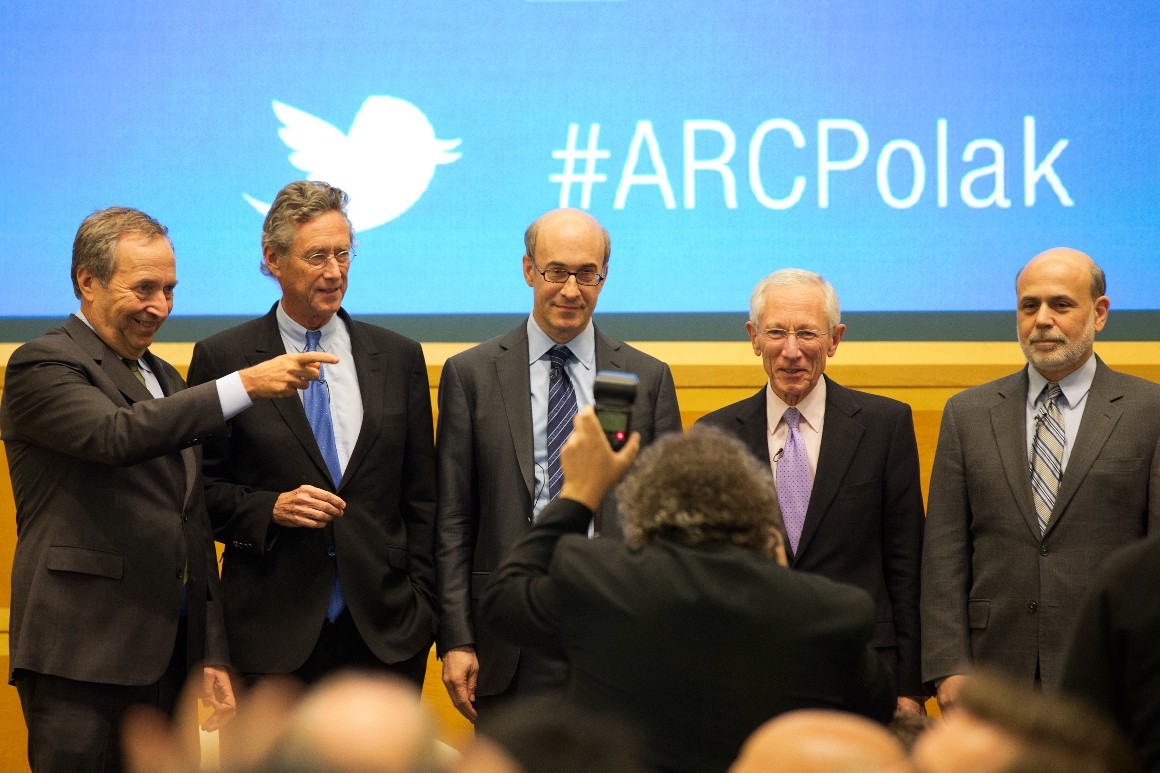
Remember, I want economic policy to be good, like, economists to do good in the world. Larry is something of a — I don’t know — I see him as a roadblock to achieving that goal. The policy advice he gives, the way he presents himself, the way he interacts with people who disagree with him. It’s really hard for me to see how that’s doing good in the world. I don’t think it’s his intention to do bad in the world. It’s just, he’s so prominent.
What I ran into this year when I started criticizing wasn’t so much Larry. I don’t think Larry cares. Though I don’t think he likes the press when I say snarky things. But I don’t think he really cares. Larry’s heard for his whole life that he’s not a nice person, right? He doesn’t care. But the people around him will circle the wagons. And that’s actually what I’ve run into.
What’s really interesting is some of the biggest pushback I’ve gotten hasn’t been about my critiques of his demeanor or the way he’s treated students or colleagues. It’s been about criticizing his economics. I also have run into a lot of blowback for criticizing Raj Chetty’s analysis of the stimulus checks, because I shouldn’t have done it in public. And that’s not even the Twitter. This is just legitimately having, in public, a debate about the quality of their economic advice is not the way it’s supposed to be done. Because they outrank me. Larry’s smarter than I am. As I am told, repeatedly.
What’s interesting about you, is, the Fed is so buttoned up, and staffers who leave the Fed board are still sort of part of the Fed ecosystem. I’m not saying that you’re not, but you’re just… yourself.
There’s a couple of things that are unique about me and my wiring. One, I absolutely love people, I love talking to people. And that’s not a common trait. And I am more emotional. I mean, some of that’s just, you know, I have a mood disorder. I’m wired to have a wider range of emotions. I work very hard to keep that in a healthy place. But I feel things very intensely. Before it was even diagnosed, I realized that at the Fed in 2008, when the data came in — I would feel sick seeing these numbers. It hurt to watch the stock market falling. I was having an emotional reaction to the data. This is not normal — frankly, it’s not normal for a person. But there was no one sitting down the hall that was having the same reaction.
Frankly, there are many people in the economics profession who are on the spectrum. So you have people that have low emotional range, and then I have high range. They frustrate me, and I frighten them. Because we’re so different. And economics has put a really big emphasis on what they consider rational, logic, numbers. Feelings, and emotion, frankly, are considered less intelligent. But within the way I approach my work, I’ll lean into the emotion sometimes, because it’s about people.
And I really believe that people should know the Fed. One of the most marketable things that I have right now is my Fed decoder ring. After being there for over a decade writing Fedspeak, listening, I can listen to a press conference, and I hear more than you do. And you hear a lot more than most people do. A lot of those words have a quantitative meaning behind them. It’s all in my brain. And I know how they run the forecasts. I know what they’re saying. I know what they’re thinking. I mean, not exactly — I can be wrong. But my ability on the outside to understand what they’re doing is so much better than the typical person. And I could go to Wall Street and make a lot of money.
In my investor talks, I get paid, and it’s like, this is so wrong. I get paid because I was in the building. And I mean, I worked hard, and I learned a lot. But it shouldn’t be that way. Everybody should understand the Fed. They don’t have to love it as much as I do. But given its prominence in policymaking, the way it affects people’s lives, it’s really wrong how it speaks to Wall Street. It doesn’t speak to Main Street. And so one of my life missions is to make my Fed decoder ring worthless.
----------------------------------------
By: Victoria Guida
Title: Sparring with Larry Summers, Biden’s Blunder and the Case for Jay Powell
Sourced From: www.politico.com/news/magazine/2021/10/08/claudia-sahm-federal-reserve-economist-interview-larry-summers-jay-powell-515618
Published Date: Fri, 08 Oct 2021 03:30:41 EST






